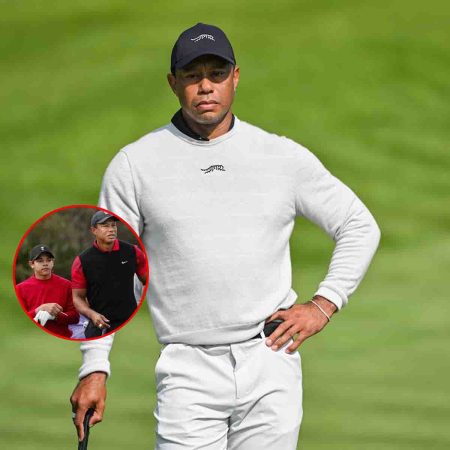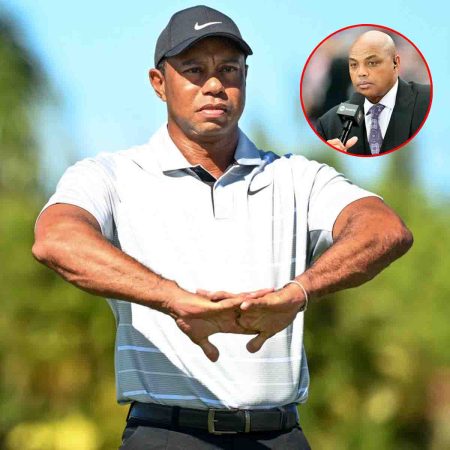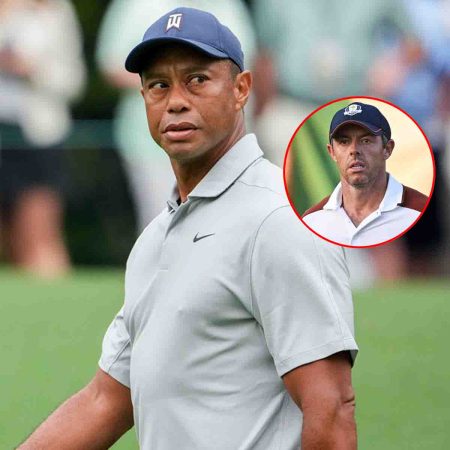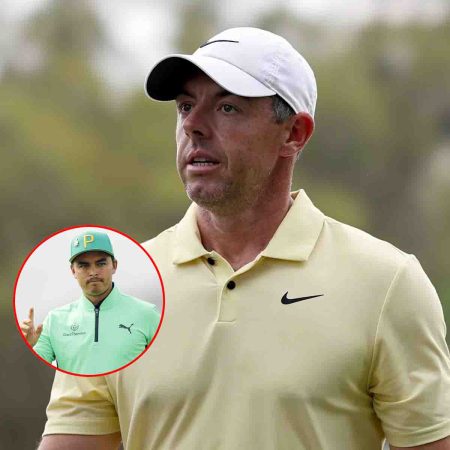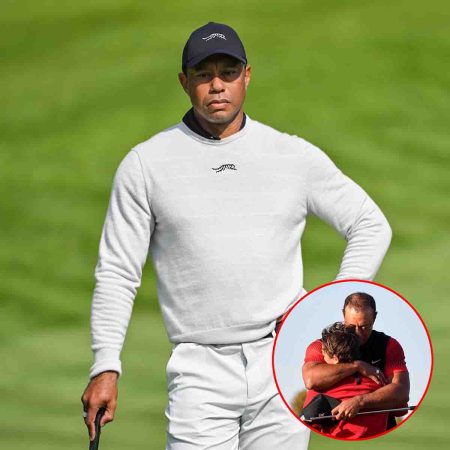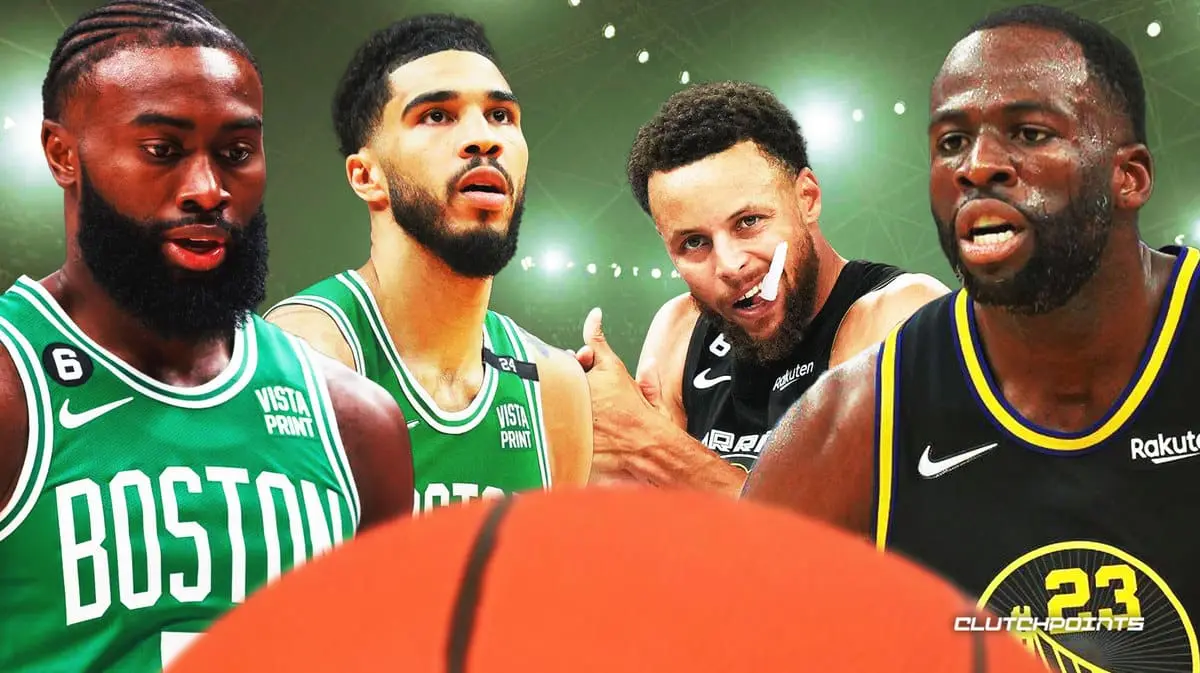
On Thursday, the Boston Celtics defeated the Golden State Warriors 121-118 in overtime. The defending champs’ heartbreaking loss to their NBA Finals opponents can be summarized in three main ways.
Golden State dies by crunch-time three
The missed three-pointer the Warriors will remember most from this heart-breaking loss came in the waning moments of regulation. Opting against calling timeout with the game suddenly tied, Steve Kerr no doubt felt confident as the reigning Finals MVP slowly dribbled up the floor, salting away the clock before having the opportunity to win the game at the buzzer.
Golden State surely had even more faith in the outcome when Al Horford switched onto Steph Curry, a matchup that decidedly went the latter’s way last June. But instead of using his quickness to beat Horford’s pressure, Curry settled for a contested side-step triple from the right wing to win the game—one that recalled his self-admitted hero-ball approach to a similar situation against his hometown Charlotte Hornets in late October.
Curry simply needs to do better there, and you could tell by the disgust on his face that he knows it. But his ugly miss was hardly the only three-point attempt that changed Thursday’s game when it mattered most.
The Celtics shot just 13-of-41 from three overall, good for 31.7%. They went 4-of-5 over the game’s last six-and-a-half minutes, though, including splashed triples from Horford and Jaylen Brown in the final 90 seconds of regulation—their first makes from beyond the arc all night.
Golden State, meanwhile, outscored Boston by 15 points on triples, shooting 18-of-52 from long-range. But the Warriors missed their last four three-point attempts in the fourth quarter, and Jordan Poole—following Andrew Wiggins’ lead from the last minute of the final stanza—missed a wide-open corner look early in overtime.
Klay Thompson didn’t even get a shot off on this perfectly designed otherwise perfectly executed after-timeout hammer action.
The long ball seemed set to deliver Golden State its second straight victory over the best team in the East for most of Thursday’s game. Amid crunch-time turnovers, game-long problems on the defensive glass and a collection of ill-timed misses, though, the Warriors ultimately died by the three.
Steve Kerr pulls playoff trump card
The surest sign this second NBA Finals rematch loomed larger to the Warriors than other run-of-the-mill midseason matchups is how Kerr began it. Jordan Poole started in place of Kevon Looney on Thursday, the first game Golden State has opened that way all season.
The most recent time Kerr pulled the small-ball trump card? When the Warriors overcame a 2-1 deficit in June, three Warriors victories that drove them to a remarkable fourth title in eight years.
Golden State trailed 17-14 upon making its initial substitution at the 4:53 mark of the first quarter. A 55-54 halftime advantage turned into a nine-point lead by the time Kerr went to his bench in the third quarter, the small-ball Warriors racing out to multiple transition scores after stringing together stops.
It’s unclear if Golden State would’ve started Poole for Looney if Jonathan Kuminga, Andre Iguodala and JaMychal Green (plus James Wiseman) had been available to play. The Warriors just didn’t have another rotation-level quasi-big available on Thursday, and Draymond and Looney have been prone to foul trouble recently. It’s telling Golden State didn’t play them together for a single second of this game, either, Draymond and Looney only entering and exiting for each other.
Still, the two-way tenets that made going small so successful for the Warriors against the Celtics early last summer—five-out offense, putting another playmaker next to Steph Curry and goading Boston to try and beat them in isolation on the other end—were at least on partial display at TD Garden.
Amid their own up-and-down regular season and the Celtics’ clear improvement compared to a year ago, that development by itself sparks optimism for the Warriors.
Warriors attack drop again and again and again
Boston boasts a more versatile array of quality defenders than any team in basketball.
Marcus Smart, Derrick White, Malcolm Brogdon, Jaylen Brown, Jayson Tatum, Grant Williams and Horford are all varying degrees of effective guarding pretty much anyone on the perimeter in isolation, allowing the Celtics to switch across four positions without incident—when they’re at their best and most locked-in, neutering Golden State’s vaunted off-ball movement.
But Joe Mazzulla didn’t put Horford at center or go small with no traditional bigs on the floor nearly as much on Thursday as he may if these teams meet again come June, and the Warriors took advantage. The vast majority of Golden State’s successful offense came attacking Robert Williams III and Luke Kornet, both of whom played drop coverage exclusively, never leaving the paint.
Check out how easy these consecutive buckets were for Curry and Poole, both of whom knew Kornet wouldn’t muster a contest on their shots.
Klay Thompson had his jumper working from the opening tip on Thursday, but that didn’t stop Williams from staying parked in the lane on multiple routine wide screens like this.
The Warriors are just too smart to avoid spamming action that works time and time again, especially if it means keeping the Celtics from switching one-through-four. Unlike a lot of teams, though, Golden State has plenty of offensive variety that keeps the defense thinking.
Look how quickly Curry and Draymond Green make decisions on the possession below. They knew Williams would stay in drop before the play began; knew Brown would briefly stay attached to Green on the pass back; and that Williams would have no chance keeping up with Curry he sprinted for a re-location three.
This might as well be pre-game shootaround for Poole.
Good team offense is all about stressing defensive pressure points. The Celtics only have so many areas to be exploited on that side of the ball, and relentlessly targeting drop isn’t a recipe for offensive success when primary defenders stay attached.
But Curry, Thompson and Poole are better suited to abuse that conservative defensive strategy than any other trio of teammates in basketball. Green and Kevon Looney are two of the league’s best screeners on and off the ball.
Expect the Warriors to continue going at Williams and Kornet whenever they face off with the Celtics again. The question then will be if Mazzulla dares to continue giving them such a straightforward means of attack. The rookie coach might’ve previewed his future approach in the second half. Kornet didn’t play after intermission, and Horford—awesome on both ends late—closed regulation and overtime at center, keying Boston’s comeback.
Source: https://clutchpoints.com



